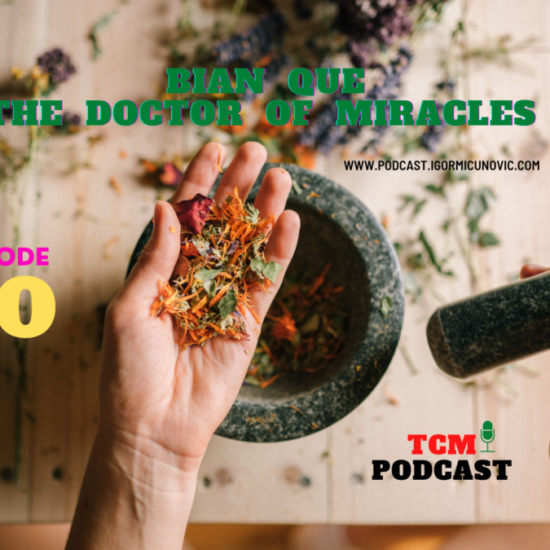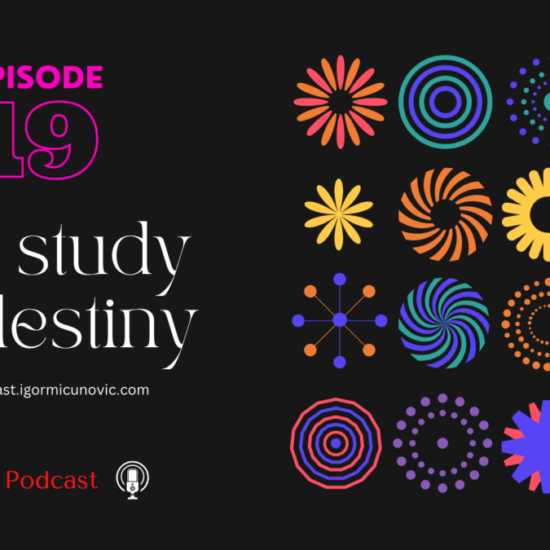Around71%of the planet’s surface is covered by water. Adultbodies are made up of about 60% water, whileour blood contains about 90% water. Babies and children have a higher percentage of water than adults. When babies are born, they are about 78%water, but this falls to 65% by the age of 1 year.In adults’ fatty tissue has less water than lean tissue.
We cannot survive without enough water. Water is essential nutrientyour body needs that is present in liquids, plain water, and foods. It helps delivering nutrients to our cells and getting rid of toxins and wastes.
It is important to consume water to fuel the body, build energy and for the proper functioning of all vital organs.
Water is crucial for many bodily functions, such as lubricating the joints, delivering oxygen throughout the body, preventing kidney damage, and more.Water is essential for the kidneys and other bodily functions.
When dehydrated, the skin can become more vulnerable to skin disorders and wrinkling.
Some of the water required by the body is obtained through foods with a high water content, such as soups, tomatoes, oranges, but most come through drinking water and other beverages.
During everyday functioning, water is lost by the body, and this needs to be replaced. We lose water thru sweating, urination, and even when breathing.Drinking wateris the best source of fluid for the body.
The amount of water needed each dayvarties from person to person, depending on how active they are, how much they sweat, and so on.
There is no fixed amount of water that must be consumed daily, but there is general agreement on what a healthy fluid intake is.For menis around 3.5 liters, and for womenis around 3 liters.Around 80 percent of this should come from drinks, including water, and the rest will be from food.
Fresh fruits and vegetables and all non-alcoholic fluids count towards this recommendation.
Times when it is most important to drink plenty of water include:
If you have a fever,
when the weather is hot,
if you havediarheaand vomiting,
when you sweat a lot, for example, due to physical activity.
Why do you need water?
Water is important for most processes body goes through in a day.
Benefits of drinking water include:
– keeping your body temperature within a normal range,
Water that is stored in the middle layers of the skinformed on skin’s surface as sweat when the body heats up. As it evaporates, it cools the body.
-Physical resistance absorbent,
Having a lot of water in the body may reduce physical strain if heatstressoccurs during exercise.
– lubricating and cushioning your joints,
Cartilage, found in joints and the disks of the spine, contains around 80 percent water. Long-termdehydration can reduce the joints’ shock-absorbing ability, leading to joint pain.
-protecting your spine and other tissues,
Dehydration can affect brain structure and function. It is also involved in the production of hormones and neurotransmitters. Prolonged dehydration can lead to problems with thinking and reasoning.
-helping you eliminate waste through urine, sweat, and bowel movements
Water is needed in the processes of sweating and removal of urine and feces.
-It forms saliva and mucus
Saliva helps us digest our food and keeps the mouth, nose, and eyes moist. This prevents friction and damage. Drinking water also keeps the mouth clean. Consumed instead of sweetened beverages, it can also reduce tooth decay.
-It delivers oxygen throughout the body
Blood is more than 90 percent water, and blood carries oxygen to different parts of the body.
-It boosts skin health and beauty
With dehydration, the skin can become more vulnerable to skin disorders and premature wrinkling.
-The digestive system depends on it
The bowel needs water to work properly. Dehydration can lead to digestive problems,constipation, and an overly acidic stomach. This increases the risk ofheartburn, and stomach ulcers.
-It helps maintain blood pressure
A lack of water can cause blood to become thicker, increasingblood pressure.
-The airways need it
When dehydrated, airways are restricted by the body in an effort to minimize water loss. This can makeasthma and allergies worse.
-It makes minerals and nutrients accessible
Thesedissolve in water which makes it possible for them to reach different parts of the body.
-It prevents kidney damage
The kidneys regulate fluid in the body. Insufficient water can lead to kidney stonesand other problems.
-It boosts performance during exercise
Consuming more water might enhance performance during strenuous activity.
-Weight loss
Water may also help with weight loss, if it is consumed instead of sweetened juices and sodas. Drinking water before meals can help prevent overeating by creating a sense of fullness.
-It reduces the chance of a hangover
When partying, unsweetened soda water with ice and lemon alternated with alcoholic drinks can help prevent overconsumption of alcohol.
Dehydration
Your body is constantly using and losing fluids through actions like sweating and urinating.Dehydration happens when your body loses more water or fluid than it takes in.
Symptoms of dehydration can range from being extremely thirsty to feeling fatigued. You may also notice you aren’t urinating as frequently or that your urine is dark. In children, dehydration may cause adry mouth and tongue, lack of tears while crying, and fewer wet diapers than usual.
Dehydration may lead to:
confusion or unclear thinking
mood changes
overheating
constipation
kidney stone formation
shock
Hyponatremia
Drinking too much water may be dangerous to your health as well. When you drink too much, the extra water can dilute the electrolytes in your blood. Your sodium levels decrease and can lead to what is called hyponatremia.
Symptoms include:
confusion
headache
fatique
nausea or vomiting
irritability
muscle spasms, cramps, or weakness
seizures
coma
Staying hydrated goes beyond just the water you drink. Foods make up around20% of your total fluid requirements each day. Along with drinking your 9 to 13 daily cups of water, try to eat lots of fruits and vegetables.
Some foods with high water content include:
watermelon
spinach
cucumbers
green peppers
berries
cauliflower
radishes
celery
Tips for drinking enough water
Try carrying a water bottle with you wherever you go, including around the office, at the gym, and even on road trips.
You don’t have to drink plain water to meet your hydration needs. Other good sources of fluid include milk, pure fruit juices, tea, and broth.
Skip sugary drinks. While you can get fluid from soda, juice, and alcohol, these beverages have high calorie contents. It’s still smart to choose water whenever possible.
Drink water while out to eat. Drink a glass of water instead of ordering another beverage. You can save some cash and lower the total calories of your meal, too.
Add some flair to your water by squeezing in fresh lemon or lime juice.
If you’re working out hard, consider drinking a sports drink that has electrolytes to help replace the ones you lose through sweating.
What happens when you don’t drink enough water?
Not drinking enough water can make you very ill. Severe dehydration can lead todizziness andcollapse. If you are showing any signs of dehydration, drink some water straight away and seek medical advice if you still don’t feel better.
Older people are at greater risk of dehydration because they naturally feel less thirsty and their kidneys may not work as well.
Memory problems, taking some medicines such as diuretics and laxatives and not being able to move around to fetch a drink all make it harder to stay hydrated.
For older people, not drinking enough water in the long term can lead to serious problems such asconstipation, a decline in memory, not being able to function as well, having afall, and having astroke.
These are the signs that you need to drink more water:
dark urine
light headedness
tiredness
irritability
feeling thirsty
loss of appetite
fainting
When your water intake does not equal your output, you can become dehydrated. Fluid losses are accentuated in warmer climates, during strenuous exercise, in high altitudes, and in older adults, whose sense of thirst may not be as sharp.
We are mostly composed of water, as it seems is essential for our wellbeing. In the next article we’ll talk mostly of healing with water. Until then Cheers and be hydrated!
Benefits of Drinking Warm Water
As wateris neutral in property, the actual temperature of the water is the deciding factor when classifying its energetic property.
For example, warm water can warm internal organs and maintain or increase the Yang in your body, e.g., warm your stomach. In this way it increases functionality of internal organs and reduce some digestive diseases.Hot water can help you stay hydrated, and it may also help ease congestion, improve digestion, relieve stress, and help you feel warmer.
Cold waterin contrary may decrease the temperature of internal organs and slow blood circulation. Cold food may also solidify fats in your stomach, which can cause digestive problems, whereas hot liquids may aid in digestion.Chinese people with thousands years of experience use foods and drinks for medicinal properties. Thus, they drink warm water to help with the internal balance of their body systems.
In general water keeps body healthy and hydrated.However, warm water can help improve digestion, relieve congestion, and even promote relaxation, compared with drinking cold water.Drinking warm water may help keep your bowel movements regular.
Drinkingwarm water may help warm mucous membranes surrounding sinuses and soothe asore throat caused by mucus buildup. Warm drink, such as tea, provide relief from a runny nose, coughing, sore throat, and tiredness.
Drinking warm water stimulates digestion and intestinal movements, helping body to better eliminate waste. Drinking warm water helps circulatory organs to expand and carry blood more effectively throughout your body.
Drinking warm water helps improve central nervous system functions, and we might end up feeling less anxious after drank it.
While drinking cold water causes muscles to contract, drinking warm water increases blood flow to the tissues, allowing muscles to relax. This can help with all kinds of painfrom joint aches to menstrual cramps. Drinking warm water before going to bed also has a soothing effect, which may help you fall asleep faster, and it will make you feel fullerand more rejuvenated in the morning.
Relieve symptoms of achalasia.
Achalasia is a condition during which your esophagus has trouble moving food down into your stomach, and people have trouble swallowing. They may feel as though foods get stuck in their esophagus instead of moving to the stomach. This is calleddysphagia. Drinking warm water may help people with achalasia digest more comfortably.
When you drink warm water, your intestines begin to contract, which allows waste that is trapped in this region to finally pass through the intestines and off body.
Help Weight Loss
When you drink warm water, your body’s temperature control system activates due to sudden increase in temperature. Your body begins to compensate for the temperature of water by lowering your internal temperature. This entire process activates your metabolism, which helps boost the effectiveness of your weight loss efforts.
ToxinsReduction
When you drink warm water, your internal body temperature begins to increase. Drinking warmwater or taking a hot bath activates your body’s endocrine system and you start to sweat. Sweating may be uncomfortable but it helps get rid of toxins and irritants in your body that keep it from functioning optimally.
In the morning
If we drink warm water regularly, the effect can be very visible. Early in the morning your stomach is empty, and the organs are not busy doing digestion or other tasks but getting rid of toxins.
During sleep, our body loses about 450 milliliters water through breathing, evaporation, and urination. So, when we get up in the morning, we definitely need to drink water. Another important reason to drink warm water in the morning is to lower the viscosity of the blood. It has been reported that the blood viscosity is typically higher for human in the morning before 10 a.m. High blood viscosity increases the possibility of getting heart
attack and stroke. Therefore, drinking warm water in the morning is not just good for health, it could be a lifesaver.
Why warm water?
According to ancient Chinese medicine, drinking a glass of warm water in the morning helps kick-start the digestive system. Warm water, because of its temperature, supposedly aids blood flow. As your blood circulation increases, it helps detoxify your body and reduce painful contractions of muscles.
On the other hand, cold water slows down organ function and causes muscles to contract.
When you put soup, or steak in the fridgethe fat solidifies. We eat healthy fats all day. And if we put cold drinks on top of that fatit solidifies in our stomachs, building up that gunk. If you drink warm liquids, it may aid your body melt away the fatand food, and use it for energy.
As a traditional Chinese remedy, drinking hot water can be traced back to2000 years old ancient Chinese texts, such as Internal medicine of the Yellow Emperor (Chin. 黄帝内经Huangdi Neijing). This text prescribes warm water as an effective regulator of health, for balancing the “yang” or life-force of your body.
If you ever travelled to China you could see everywhere warm water placed in thermos, bottles and places where you can drink warm water (railway stations, airport, trains, etc.). It is believed that warm water cleanse and distillate water. Popularization of drinking warm water in China began 1862 when cholera epidemic took many lives along China but not in Southern China because people drank hot water as method of prevention against cholera.
Today, almost every government body, business, and school administrative office in China boasts a hot water dispenser.
Water therapy
This therapy is also known as Japanese water therapy. A popular method of drinking about 1.5 liters (5-6 glasses) of water early morning before the brush time. It is the first thing to be done after waking up.
As you wake up in the morning before brushing teeth, drink up to 1.5 litres of water.Brush and clean the mouth but do not eat or drink anything for 45 minutes.
After 45 minutes you may eat and drink as normal.After 15 minutes of breakfast, lunch and dinner do not eat or drink anything for 2 hours.
At first, it may be difficult to drink 1.50 litres of water at one time; however, your body will gradually get accustomed to the protocol.
Water therapy relieves:
ConstipationHigh Blood PressureUrinary Tract Infection (UTI)TuberculosisBody Pain
ObesityNauseaMenstrual problems, etc.
Body while sleeping is in a state of fasting, and it also repairs itself. An empty stomach allows for more energy to be allocated to the healing and reparation process that your body is going through while sleeping.
Drinking water on an empty stomach helps cleanse the colon and allows better absorption of nutrients into the system.
Drinking at least 2 cups of water early in the morning will boost your metabolism by 24% and help you lose weight.
Drinking water in the morning hydrates the cells in your body. The sprints of hydration helps in producing blood and muscle cells.
A high dose of water in the morning helps to remove all the toxins from your system and leaves you with a glowing skin.
Water flushes and balances your lymphatic system increasing your immunity and thus helps you fight a variety of illnesses.
Water therapy benefits
We can live five to seven weeks without food, but the average adult cannot live more than five days without water. Studies have shown that drinking water first thing in the morning on an empty stomach purifies the body’s internal system. An especially important result of this treatment is that it cleanses the colon, which makes the body much more able to absorb nutrients from
food. Provided research results proved that water therapy can cure many health conditions very rapidly on its own—with no other medical treatments. Water therapy helps with constipation, diabetes, hypertension, and even asthma.
Water therapy increases the production of new blood and muscle cells andhelps with weight loss. Water also increases the efficiency of immune system. Water is one of the good medications for ulcer and digestive problems, and the main lubricant in the joint spaces and helps prevent arthritis and back pain.
If dehydrated your bodily functions and metabolismwill slow down in order to conserve energy when you haven’t had enough water to drink, and organs aren’t enough supplied with liquids.
Dehydration’s Hidden Signs
Dehydration could cause stress in the body. When the stress is accumulated day by day, it could find the weakest link of the body as an outlet, and cause various illness depending on the constitution of the individual.
The body’s biological thirst signals can be mistaken for signs and symptoms of other illnesses. If we treat the root cause of these—dehydration—we can avoid costly and unnecessary medical interventions and enjoy long-term wellbeing.
“Humans seem to lose their thirst sensation and the critical perception of needing water,” wrote Batmanghelidj in one of his two books on chronic dehydration andwater therapy. “Not recognizing their need for water,” he continued, “they gradually become increasingly andchronically dehydratedwith the progress of age.”
Further confusion results when the body produces complicatedsecondary symptoms of dehydration. Many doctors misinterpret those secondary symptoms as unrelated diseases.
These conditions include, but are not limited to:
Dyspepsia, Rheumatoid arthritis, Angina, Migraine and headaches, Colitis, Constipation, Hypertension, Anemia, Obesity, Sinusitis, Pulmonary tuberculosis, Asthma, Kidney stones, Diabetes, Irregular menstruation, Leukemia, Uterine cancerand Breast cancer.
In general, just following healthy pattern of drinking enough water and additional liquids may save us from all sorts of health related problems.


